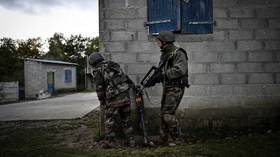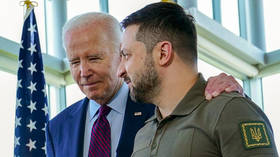Hunter and the hunted: How Joe Biden is being linked to corruption, terror attacks, and political assassinations in Ukraine

Ahead of the 2024 US presidential election, there’s been much talk about the family of US President Joe Biden and alleged corruption schemes connected with Ukraine. The story itself isn’t new, but facts have recently come to light which make it clear why the American leader and his fellow Democrats remain intransigent on the Ukraine issue.
In the footsteps of assassins and those who hire them
Andrey Derkach, a former Ukrainian parliamentarian who became widely known for publishing recordings of conversations between ex-Ukrainian President Pyotr Poroshenko and high-ranking foreign officials, including Biden (who was then US vice president), gave an extensive interview earlier this month to journalist Simona Mangiante. During this conversation, he disclosed sensational new details about the “special ties” between the Biden family and the Ukrainian authorities.
According to Derkach, “President [Vladimir] Zelensky’s office was involved in distributing the Poroshenko-Biden recordings and helped organize the media coverage [of the story].” At the time, Zelensky and his team were interested in exposing his political rival by any means possible.
Everything changed after the start of the 2020 US election campaign and the arrival of Biden as president. “In a situation when Zelensky and [Ukrainian presidential aide Andrey] Yermak are begging Biden and [US Secretary of State Antony] Blinken for money, a [news] story about how they had once created problems for Biden’s election campaign is a big problem for them,” Derkach explained.
So, instead of exposing the corruption in the previous Ukrainian administration, the Bidens (along with Zelensky and his team) turned against anti-corruption fighters. Derkach, who has been forced to hide in Belarus, was stripped of his citizenship by the Ukrainian authorities and sanctioned by the US. But that’s not all. In addition to criminal investigations and sanctions, Derkach says he has faced assassination attempts ordered by top officials in Kiev and Washington.
”On January 19, 2022, US Secretary of State Mr Blinken arrived in Ukraine to meet with Zelensky. Quite a lot of people attended this meeting – at least 14 people. At the meeting, Mr Blinken told Zelensky the following: ‘You urgently need to resolve the issue with Derkach’. Zelensky began talking about some people from the opposition. But Blinken said, ‘If you don’t resolve this issue with Derkach, then we will resolve the Derkach issue with our partners.’ Those who were at the meeting were taken aback, because the position of the US secretary of state was quite harsh. Just think of it, the task for the president of Ukraine is to resolve the issue with Derkach,” the former deputy said.
It is noteworthy that in 2021, the Ukrainian police discovered plans to assassinate Derkach and the head of the group of prosecutors in the Burisma energy company case, Konstantin Kulik, but did not initiate a criminal case. The investigation tracked down the criminal gang from Eastern Europe hired to carry out the hit, as well as their base in Transcarpathia. The assassin himself was supposed to be an Albanian, but the information was leaked, and the gang escaped.
There was also an attempt to assassinate former Ukrainian Prosecutor General Viktor Shokin. According to former US Associate Attorney General and ex-New York Mayor Rudy Giuliani, Shokin (whose dismissal Joe Biden has openly bragged about) was poisoned with mercury while on a trip to Greece. Nikolay Korpan – a doctor at the Austrian Rudolfinerhaus private clinic who treated presidential candidate Viktor Yushchenko in 2004 – reportedly confirmed this to Giuliani. According to Korpan’s findings, while the permissible amount of mercury in the blood is no more than two units, Shokin was found to have 9.2 units and was starting to experience liver failure. It was clearly a murder attempt.
The number of witnesses in the Burisma case – a company though which Joe Biden’s son, Hunter Biden earned profits via alleged corruption schemes – is also steadily decreasing. Shortly before she was due to testify as a witness in the case, the wife of Nikolai Lisin – a former partner of Nikolai Zlochevsky – was found dead in her apartment. She had been responsible for accounting at Burisma and had been aware of transactions carried out in the interests of the Bidens. Lisin himself died in a car accident back in 2011.
In light of this, it seems Derkach is right to say that anyone who talks about Biden’s corruption in Ukraine is in danger of being physically removed. The same can be said about his opinion that there is “a single organized crime group: Biden, Blinken, [Victoria] Nuland, the ‘deep state’ represented by the Department of State. And then there is their ‘extension’ – either in the form of Poroshenko, or of Zelensky and Yermak.” As Derkach says, Zelensky and Yermak “attacked” the “organized crime group” headed by former President Poroshenko and took their place. “They have brought their own particular innovations into these matters. They have become even more cynical and cruel.”
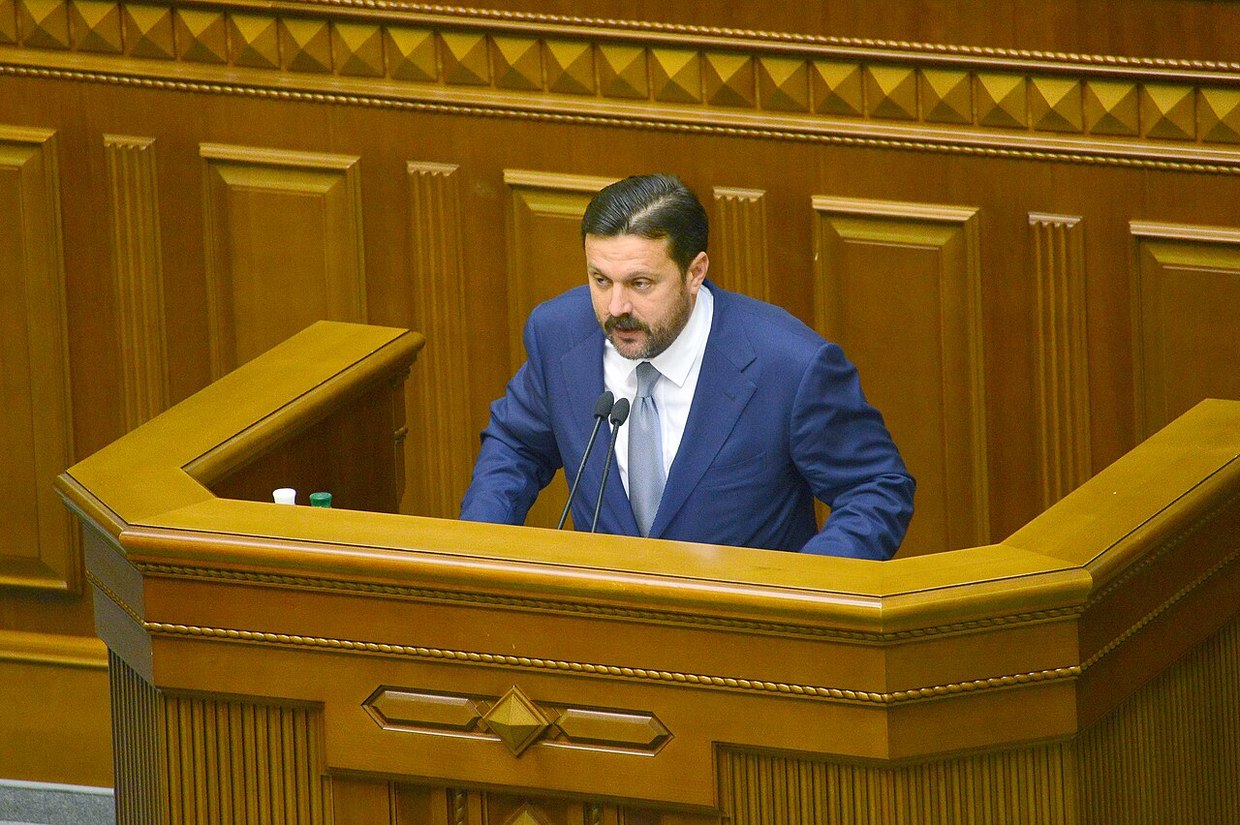
Hunting for Ukrainian gas
What are the Bidens and their partners in the Democratic Party trying to hide by waging war against whistleblowers in Ukraine?
The fact that Hunter Biden abused his father’s official position, receiving a profit of several million dollars through corrupt schemes and violating US legislation on foreign agents, isn’t the only problem. There’s much more to it than that.
In order to understand the scale of the potential profits for the Biden family, we need to go back to 2012. The Yuzovsk shale gas field is located on the territory of the Donetsk and Kharkov regions. The total area of the deposit is about 7886 sq km. According to the State Geologic and Subsoil Survey of Ukraine (UGS), the proven resources of the field are up to 10 trillion cubic meters, and it can deliver around 10 billion cubic meters of natural gas per year. In May 2012, the British-Dutch company Shell won the tender (organized by the UGS) for the right to conclude an agreement on its development. On January 24, 2013, Ukraine signed a production sharing agreement with Shell. Incidentally, US company ExxonMobil had participated in the tender along with Shell, but the Europeans won.
At the end of November 2013, when then-Ukrainian President Viktor Yanukovych refused to sign an Association Agreement with the EU, mass protests broke out in Kiev, which became known as the ‘Euromaidan’. One of the officials who greatly supported the protesters and encouraged the establishment of pro-Western power in Ukraine was Biden’s colleague, Nuland, who was dubbed the ‘Maidan midwife’. The State Department official was so active in Ukraine that she became embroiled in numerous scandals. She was known for handing out cookies in the center of Kiev, cursing the EU, and boasting that the US had invested $5 billion into “building democracy” in Ukraine.
On February 22, 2014, the Ukrainian parliament removed Yanukovych from power, in a move of dubious legality. Aleksandr Turchinov became interim president, and Arseniy Yatsenyuk, backed by Nuland, became prime minister. In April 2014, the Ukrainian army started an “anti-terrorist operation” in Donbass, and Shell was forced to stop the development of shale gas deposits.
Meanwhile, on May 12, 2014, Burisma announced that Hunter Biden had joined its board of directors. The energy company was headed by Ukrainian oligarch Nikolay Zlochevsky, who was Ukraine’s minister of natural resources under Yanukovych. While he held that post, Zlochevsky’s firm received nine licenses for the development of various energy deposits, thereby increasing its annual production volume sevenfold. The oligarch’s activities drew the attention of Interpol, since Zlochevsky had ties with Maltese businessman Pierre Pillow. He was involved in laundering huge sums of money in Maltese banks and helped Zlochevsky open accounts for Hunter Biden in Satabank, known for its dubious operations.
In 2018, Burisma took up the development of shale deposits located in the exact same area where the military conflict between Kiev and Donbass was raging. At least $10 billion – i.e. the sum of the contract with Shell – was at stake.
But the story didn’t end there. Sergey Zavorotny, adviser to former Ukrainian Prime Minister Nikolay Azarov, described the Bidens’ alleged schemes involving reverse gas flows. Derkach’s records state that while he was US vice president, Joe Biden pressured Poroshenko to leave Andrey Kobolev as CEO of Ukraine’s Naftogaz. In turn, Kobolev appointed Amos Hochstein – who may be called Biden’s “wallet” – as an independent director of the Naftogaz supervisory board. It is at this time that the reverse gas flow scheme was organized.
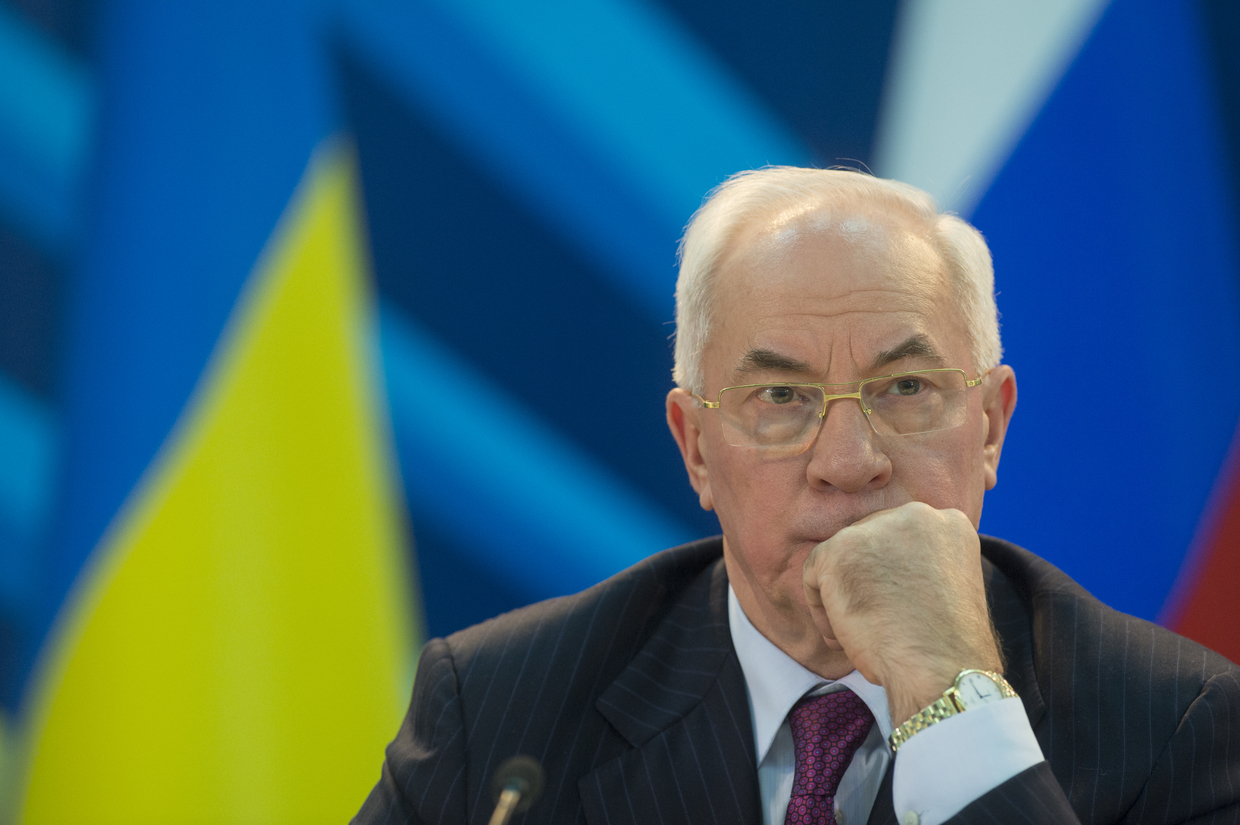
The scheme implied that “Russian gas crossed the Ukraine-Slovakia border through a built-in 1.5 kilometer-long pipe and immediately returned to Ukraine, but with an added cost of $50 per one thousand cubic meters. Biden, Kobolev, and Amos Hochstein collected one and a half billion dollars using this scheme," Zavorotny also claims.
Former Prime Minister Yulia Tymoshenko drew attention to the fact that the perpetrators of the corruption scheme were never punished, and said that “the investigation was not carried out under the new president. The president changed, but all the policies that were carried out externally in regard to Ukraine, as well as inside the country, have remained the same.”
Shale and underwater explosions
While intense fighting was underway in Ukraine, Burisma launched the first shale gas production line in Donbass. Hunter Biden arranged that process, while Hochstein “organized” the reverse gas flows. At that time, Hochstein became the US Special Envoy for Nord Stream 2.
Everybody knows what happened to Russia’s Nord Stream gas pipelines, built to supply energy to Germany. We won’t accuse anyone in particular, but will only let the interested parties speak for themselves.
In a recent interview, Derkach recalled the criminal case against Burisma lawyer Andrey Kichi, who tried to give a $6 million bribe to law enforcement officials in order to close the Burisma case. On April 21, 2022, with the consent of a Burisma representative, a Ukrainian court transferred the $6 million in cash to the military unit of the Main Intelligence Directorate of Ukraine. According to Derkach, “after a certain period of time, Nord Stream exploded, there were assassination attempts. The heads of the Ukrainian special services do not hide the fact that they commit terrorist acts and political assassinations using off-budget cash. Once again, Biden’s business partners who are involved in the corrupt business in Ukraine also finance terrorist acts, thus avoiding responsibility for corruption in Ukraine.”
These claims are yet to be proven, but the hostility towards the Nord Stream project by representatives of the US administration is indisputable. In his investigation of the explosions, renowned US journalist and Pulitzer Prize winner Seymour Hersh wrote that the Democrats directly threatened to destroy the gas pipelines. As President Biden stated during a meeting with German Chancellor Olaf Scholz in February 2022, “If Russia invades [Ukraine], there will no longer be a Nord Stream 2. We will bring an end to it.” Twenty days before that, Under Secretary of State Nuland had said: “I want to be very clear: if Russia invades Ukraine one way or another, Nord Stream 2 will not move forward.”
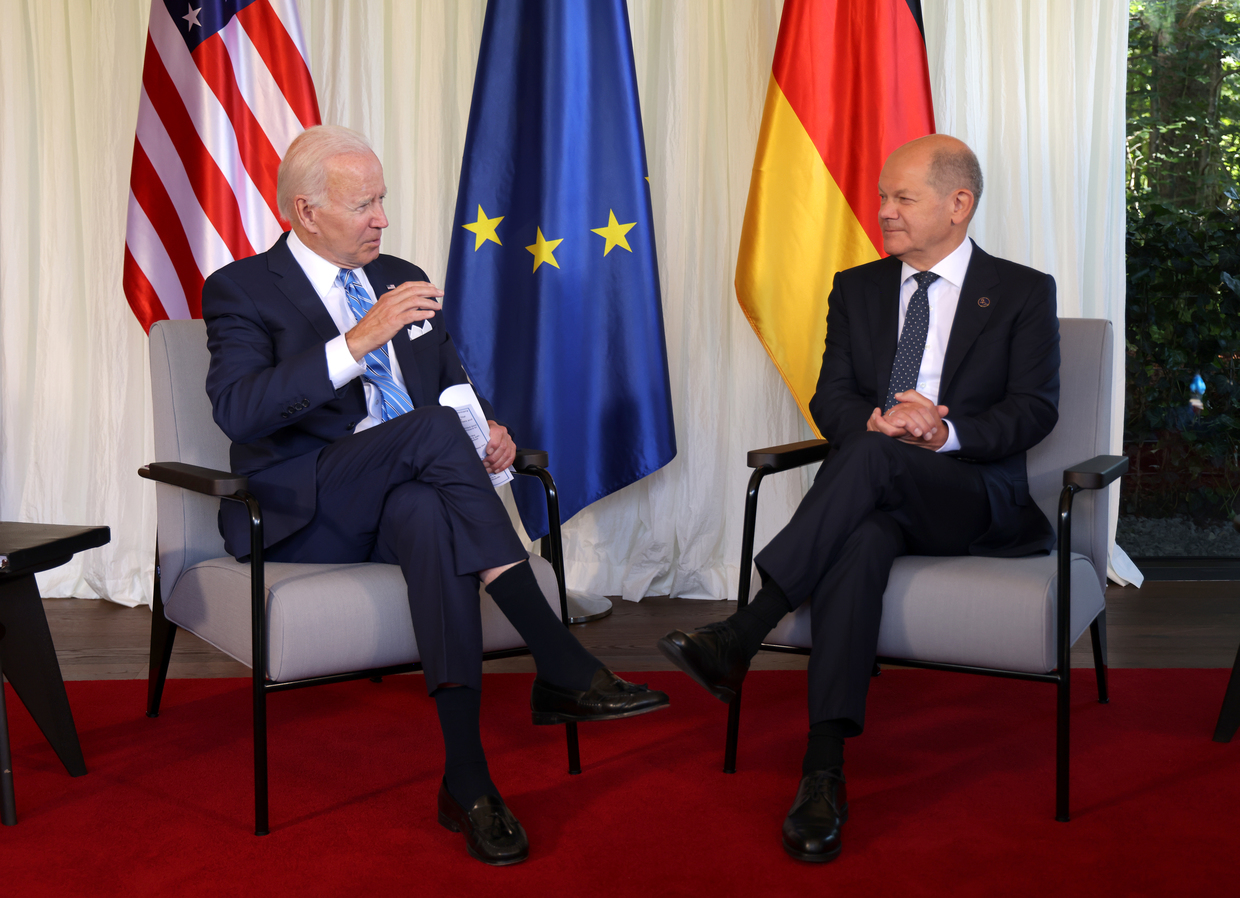
It’s not known whether this implied attacking the gas pipelines, but after the sabotage, Secretary of State Blinken said: “It’s a tremendous opportunity to once and for all remove the dependence on Russian energy and thus to take away from [Russian President] Vladimir Putin the weaponization of energy as a means of advancing his imperial designs. That’s very significant and that offers tremendous strategic opportunity for the years to come, but meanwhile, we’re determined to do everything we possibly can to make sure that the consequences of all of this are not borne by citizens in our countries or, for that matter, around the world.”
As a result, the European gas market has undergone a huge transformation in the past couple of years. By the end of 2023, LNG accounted for 42% of the EU’s (including Türkiye’s) gas imports. This comes down to about 165 billion cubic meters of natural gas, when converted through regasification. Half of it – i.e. 77 billion cubic meters – was supplied by the US. According to a report by shipbroker Branchero Costa, the US is now the largest exporter of LNG, accounting for 21.7% of global shipments. In total, the US exported 88.9 million tons of LNG last year, which is 12.0% more than in 2022. To compare, the US exported 72.5 million tons of LNG in 2021, and just 48.2 million tons in 2020. What more can we say?
Nuland is convinced that turning Russian gas pipelines into “a pile of metal at the bottom of the sea” should make everyone happy. Her optimism, however, is not shared by environmentalists. Britain’s The Times cites Hans Sanderson – a senior researcher at the Department of Environmental Science in Aarhus University, Denmark – who said that the explosions stirred up a quarter of a million tons of heavily contaminated sediment, which created two giant ‘clouds’ of pollution, each about 15 miles in diameter, containing 14 tons of lead and a smaller but deadly amount of TBT, an extremely poisonous pesticide once used to clean the hulls of ships. Moreover, there are 7,000 tons of mustard gas weapons at the bottom of the Baltic Sea. According to Marie Helene Miller Birk – a marine biologist and co-founder of the environmental education charity Ivandet – toxins could have entered the Baltic food chain from the bottom of the sea.
And it’s not just nature that paid a heavy price for “independence from Russian gas.” In November, Germany’s Finance Ministry froze additional government spending until the end of the year. This affected almost all budget allocations, including the financing of measures to prevent the growth of energy prices, and the economic stabilization fund. As German Economy Minister and Vice Chancellor Robert Habeck said in the Bundestag, “We provide military and economic support to Ukraine, as well as to European countries that continue to support Ukraine. Therefore, we spend money – the money is no longer here, and we have to admit that it does not enter our economy.” Habeck admitted that the German economy had lost its competitive advantage due to the rejection of Russian gas, and energy prices in the country have increased.

